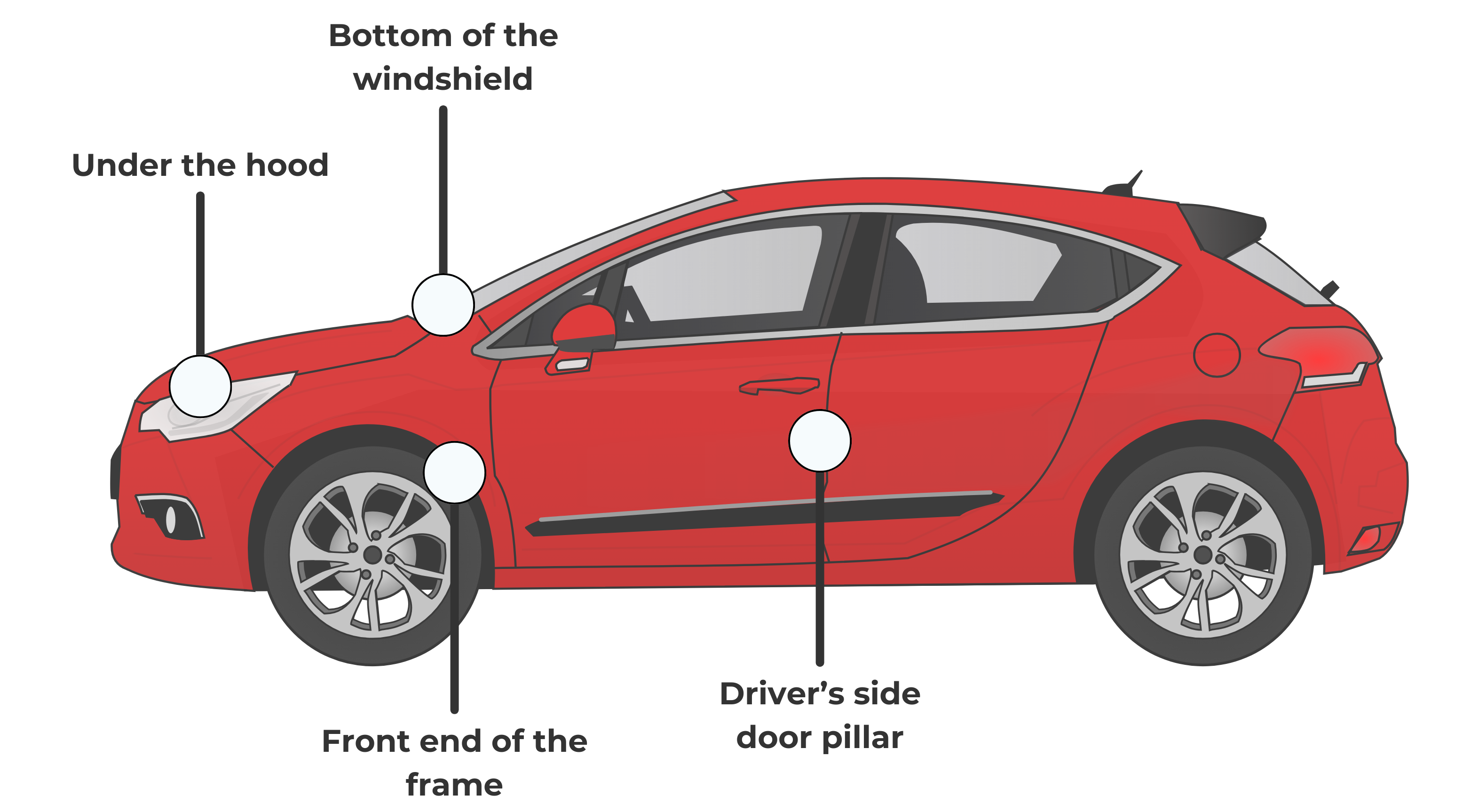 Shopping for a used Honda—whether it’s a Civic, Accord, CR-V, or any other model—is exciting, but there’s one crucial step you can’t afford to skip: running a Honda VIN number check free tool. It might seem like a small detail, but that 17-character code can tell you everything you need to know about a car’s history. A Honda VIN check makes it easy to steer clear of scams and make sure you’re getting a legit, road-ready ride.
Shopping for a used Honda—whether it’s a Civic, Accord, CR-V, or any other model—is exciting, but there’s one crucial step you can’t afford to skip: running a Honda VIN number check free tool. It might seem like a small detail, but that 17-character code can tell you everything you need to know about a car’s history. A Honda VIN check makes it easy to steer clear of scams and make sure you’re getting a legit, road-ready ride.
In this guide, we’ll walk you through how to spot a fake or cloned Honda VIN, how to verify it properly, and which tools you can use to run a free Honda VIN number check.
Let’s make sure your next Honda is a smart buy from the start. Check Your Honda VIN Now – It’s Fast, Free, and Could Save You Thousands.
What Is a VIN and Why Does It Matter?
A Vehicle Identification Number (VIN) is a special 17-character code. Every car has its own, like a fingerprint. This code reveals key details about the car—such as the maker, model, engine type, where it was built, and the year it was made.
For any Honda, the VIN plays a big role in protecting you from scams.
Thinking about buying a used Honda? Always run a Honda VIN check. Here’s why it helps:
- See the car’s full history
- Spot problems like salvage titles, stolen records, or flood damage
- Make sure the VIN matches the car’s papers and the number on the vehicle
Common VIN-related Scams You Should Know About
Scammers have gotten smarter over the years. They use tricky methods to fool people. According to the NICB, VIN cloning continues to be a growing trend. That’s why they advise visiting the National Insurance Crime Bureau’s website to run an online VIN check if you’re buying a car and concerned it might be stolen.
Here are the most common VIN scams you should watch out for:
VIN Cloning
This scam involves stealing a real VIN from a car in another state. Then, the scammer puts that VIN on a stolen or damaged car. When someone checks the number, it looks like the car is clean—because it shows the history of the original car, not the one in front of you. As a result, the buyer might think everything is fine.
Fake or Tampered VIN Plates
Some scammers change the VIN plate by filing it down or re-stamping it. Others might replace it with a fake one. They do this to hide the car’s true identity or past. Without expert help, it can be tough to notice these changes.
Title Washing
Here’s how it works: the scammer moves a car with a bad title to a different state with weaker laws. That state may not show if the car was flooded, rebuilt, or salvaged. After that, the car looks like it has a clean title, but its real history stays hidden.
Phantom Vehicle Scams
In this scam, the car isn’t real at all. The scammer posts a fake online ad with a stolen or made-up VIN. Then, they ask for a deposit or full payment. Once they get the money, they disappear—and the buyer gets nothing.
Fake or Changed Vehicle History Reports
Scammers can create fake reports using editing tools like Photoshop. Others might take real reports and change the data. They often use a clean VIN to make the car seem safe. That’s why it’s smart to double-check reports through trusted sites like CARFAX, AutoCheck, or your local DMV.
Odometer Rollback
Scammers sometimes roll back the odometer to show fewer miles. Then, they change the VIN or fake the service records. Together, these tricks make the car look newer and more valuable than it really is. In the end, buyers pay more and miss signs of wear or needed repairs.
Final Tip: Always run a Honda VIN number check free or paid tool through trusted sources before buying a car. If something feels off, walk away. A little caution now can save you a lot of trouble later.
Signs You Might Be Dealing With a VIN Scam
Here are a few tell-tale signs that should raise your suspicions:
- The seller refuses to provide a VIN
- VIN is unreadable, scratched out, or missing entirely
- Vehicle history report doesn’t match seller’s story
- Price is too good to be true
- Title shows different state or inconsistent documentation
- Seller pressures you to skip the VIN check or vehicle history report
- The vehicle has signs of recent repainting near the dashboard or door frame (where the VIN is usually located)
- Vehicle history is unusually short or has large gaps
- Listing photos show a different VIN than the one on the actual vehicle
- Seller only communicates via email or avoids in-person meetings
- Multiple listings online use the same VIN for different vehicles
If you’re unsure, consult a professional mechanic or take the car to a dealership for verification.
How to Spot a Fake or Tampered Honda VIN
When buying a used Honda, spotting a fake or tampered VIN (Vehicle Identification Number) can save you from costly mistakes. A few smart checks can help you avoid scams. Here’s how to do it step by step:
1. Look for Matching VINs
Every real Honda shows the same 17-character VIN in several places. Start by checking these common locations:

- On the dashboard (driver’s side, visible through the windshield)
- Inside the driver’s side door jamb (on a sticker or metal plate)
- Stamped on the engine block
- On the vehicle’s title and registration papers
- On insurance documents
🚩Red Flag: If any of these VINs are different, something’s wrong. It might mean tampering or even a cloned vehicle.
2. Check the VIN Plate Carefully
Now take a good look at the actual VIN plate on the car. Ask yourself:
- Does it look much newer than the rest of the car?
- Do you see scratches, glue marks, or crooked rivets?
Honda usually uses special rosette-style rivets on factory VIN plates. These are tough to fake. If the rivets look odd or are missing, that’s a serious warning sign.
📍Pro Tip: A crooked or uneven VIN plate could be fake. Walk away if it looks suspicious.
3. Run a Honda VIN Check
Next, use VinCheck.info free Honda VIN number check tool. This tool can pull data from trusted sources like:
- NMVTIS (National Motor Vehicle Title Information System)
- Honda manufacturer records and recalls
- DMV title and registration databases
Compare the report with the car in front of you. Look for mismatched details—like different mileage, accident history, owners, or even trim level. If anything doesn’t line up, you’re probably looking at a shady deal.
Run Honda VIN Number Check Free Tool Before Buying
Before signing on the dotted line, take a few minutes to perform a Honda VIN number check free. It’s fast, easy, and could save you thousands—or even protect you from legal trouble. Whether you’re buying a Civic, CR-V, Accord, or any other model, our Honda VIN Check Free tool gives you the peace of mind you need.
Run our Honda VIN Check Now!
Other Resources for Honda Buyers
Want to dive deeper into Honda VINs and used car buying tips? Check out these helpful posts: